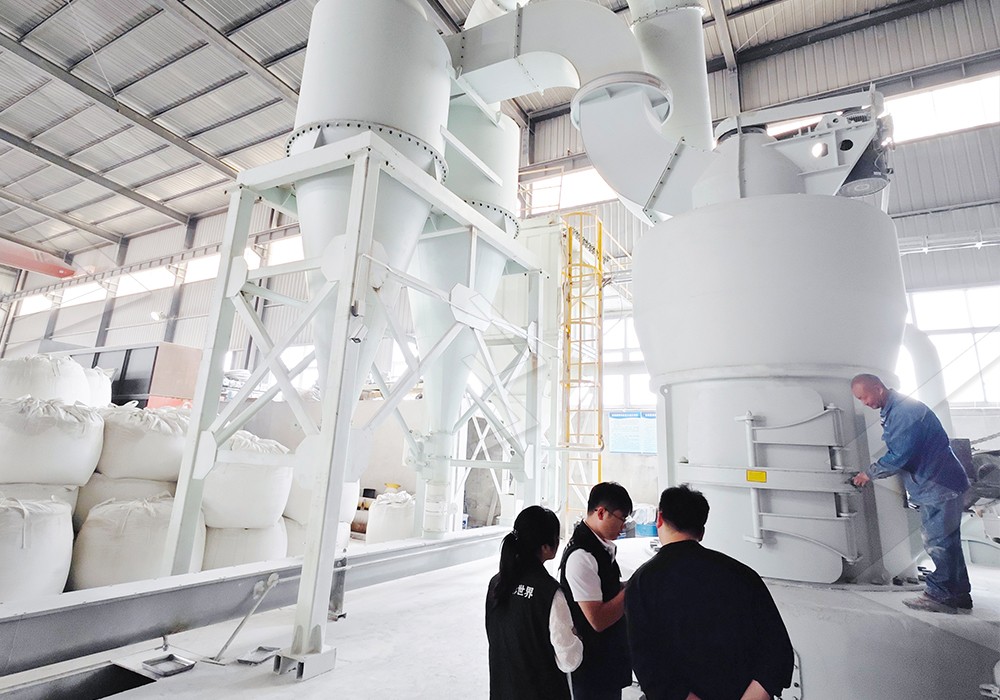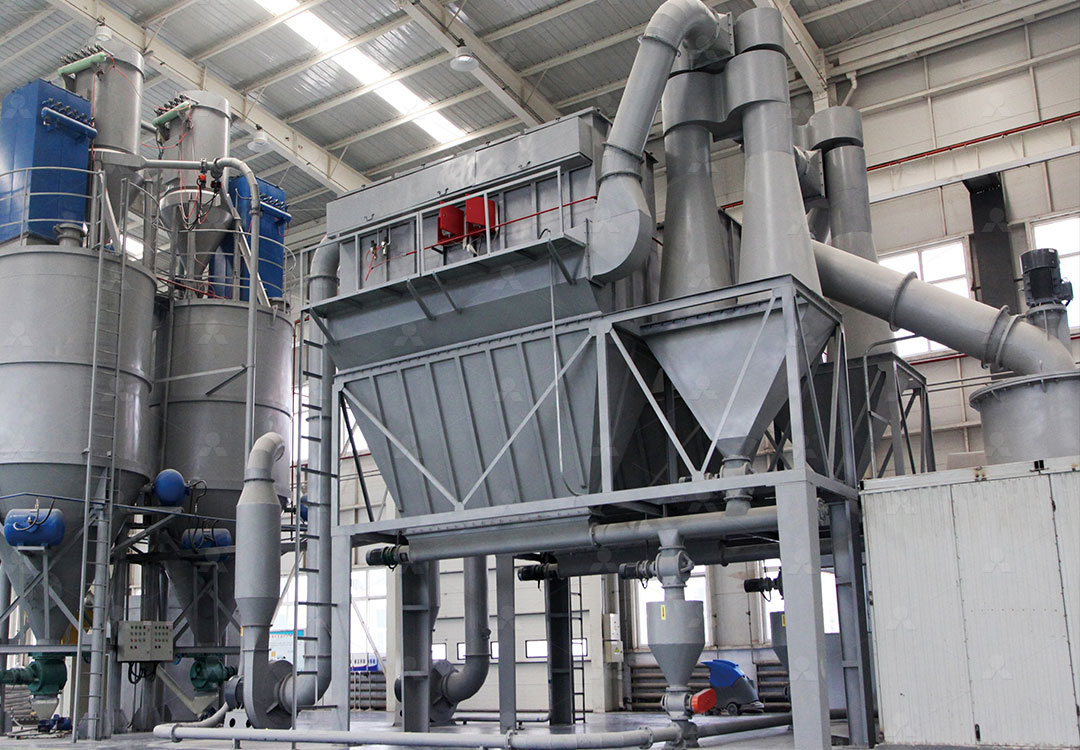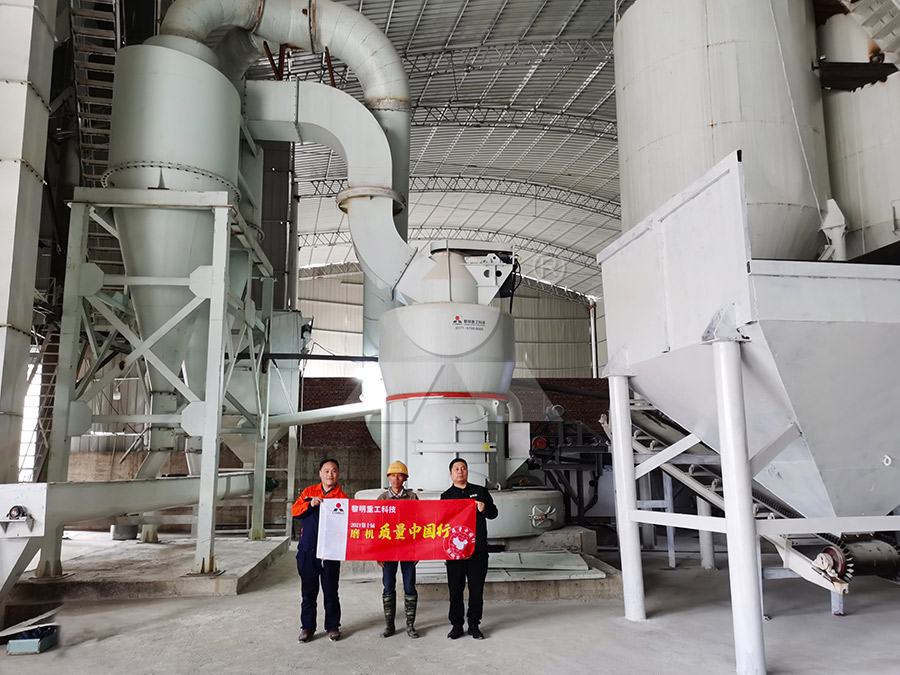Raymond Mill for Asbestos Processing: Efficient Grinding Solutions
We provide a wide range of mills — including Raymond mill, trapezoidal mill, vertical mill, ultrafine mill, and ball mill, obtained ISO9001 international quality certification, EU CE certification, and Customs Union CU-TR certification. Suitable for processing minerals such as limestone, phosphate, quicklime, kaolin, talc, barite, bentonite, calcium carbonate, dolomite, coal, gypsum, clay, carbon black, slag, cement raw materials, cement clinker, and more.
The discharge range of these mills can be adjusted to meet specific processing needs, typically from 80-400 mesh, 600-3250 mesh, and can achieve the finest particle size of up to 6000 mesh(D50).
If you are looking for a reliable grinding solution to turn stone or minerals into fine powder, please feel free to contact our online customer service.
Raymond Mill for Asbestos Processing: Efficient Grinding Solutions
Asbestos processing demands specialized equipment that can handle its fibrous nature while ensuring operational safety and efficiency. For decades, Raymond Mill has been the go-to solution for asbestos grinding applications, offering reliable performance and precise particle size control. The unique requirements of asbestos mineral processing – including the need for contained operations and specific fineness levels – make Raymond Mill technology particularly well-suited for this challenging material.

Technical Advantages for Asbestos Applications
Raymond Mill systems provide several critical benefits when processing asbestos fibers. The closed-system design prevents fiber release into the environment, while the centrifugal grinding action effectively breaks down asbestos fibers without generating excessive heat that could damage material properties. With an input size capacity of <25 mm and throughput ranging from 0.6-5 tph, Raymond Mill offers flexibility for various production scales.
The grinding mechanism involves oscillating rollers pressing against a ring under centrifugal force, with material being fed evenly into the grinding chamber. This creates consistent particle size distribution crucial for asbestos applications where fiber length and diameter significantly impact material performance. The integrated separator system ensures precise control over final product fineness, while the negative pressure operation contains potentially hazardous fibers throughout the process.
Advanced Alternatives for Enhanced Performance
While traditional Raymond Mill remains effective for standard asbestos processing, operations requiring higher throughput or finer particle sizes should consider our MW Ultrafine Grinding Mill. This advanced system handles input sizes up to 20 mm with capacities ranging from 0.5-25 tph, making it ideal for operations scaling up their asbestos processing capabilities.

The MW Ultrafine Grinding Mill particularly excels in asbestos applications due to its innovative design features. The absence of rolling bearings and screws in the grinding chamber eliminates concerns about damage to bearing or sealing parts – a critical advantage when processing abrasive materials like asbestos. The external lubrication system allows for maintenance without shutdown, supporting continuous 24-hour operation that many asbestos processing facilities require.
With adjustable fineness between 325-2500 meshes and screening rates achieving d97≤5μm in a single pass, the MW Ultrafine Grinding Mill delivers superior precision for asbestos fiber control. The efficient pulse dust collector ensures no dust pollution during operation, while the integrated muffler and noise elimination features create a safer working environment.
Operational Efficiency and Environmental Compliance
Modern asbestos processing must balance production efficiency with stringent environmental and safety regulations. Raymond Mill technology, particularly in its advanced iterations like the MW Ultrafine Grinding Mill, addresses both concerns effectively. The fully enclosed systems prevent fiber release, while energy-efficient designs reduce operational costs.
The higher yielding and lower energy consumption characteristics of the MW Ultrafine Grinding Mill – with production capacity 40% higher than jet grinding mills and system energy consumption only 30% of jet grinding mills – make it an economically attractive option for asbestos processors. The German technology cage-type powder selector enhances separation precision, crucial for achieving consistent asbestos fiber specifications.

Future-Proofing Your Asbestos Processing Operations
As regulatory requirements evolve and processing technologies advance, investing in versatile grinding solutions becomes increasingly important. Both Raymond Mill and the MW Ultrafine Grinding Mill offer the flexibility to adapt to changing market demands while maintaining operational safety and product quality.
The digitalized processing and high precision manufacturing of these systems ensure reliable performance with minimal downtime. With sufficient spare parts supply and comprehensive technical support, operations can maintain consistent production schedules essential for asbestos processing businesses.
Frequently Asked Questions
What makes Raymond Mill suitable for asbestos processing?
Raymond Mill’s closed-system design, precise particle size control, and ability to handle fibrous materials make it ideal for asbestos processing. The negative pressure operation contains fibers effectively throughout the grinding process.
How does the MW Ultrafine Grinding Mill improve upon traditional Raymond Mill for asbestos applications?
The MW Ultrafine Grinding Mill offers higher capacity (up to 25 tph), finer particle control (up to 2500 meshes), and advanced safety features including no internal bearings in the grinding chamber and superior dust collection systems.
What safety features are incorporated into these grinding systems for asbestos processing?
Both systems feature fully enclosed designs, efficient pulse dust collectors, negative pressure operation, and noise reduction technology to ensure safe processing of asbestos materials.
Can these mills handle different types of asbestos fibers?
Yes, both Raymond Mill and MW Ultrafine Grinding Mill can process various asbestos types, with adjustable parameters to accommodate different fiber characteristics and final product requirements.
What maintenance considerations are specific to asbestos processing equipment?
The external lubrication system of the MW Ultrafine Grinding Mill allows maintenance without exposing internal components, while the absence of internal screws and rolling bearings reduces maintenance frequency and improves safety during service.
